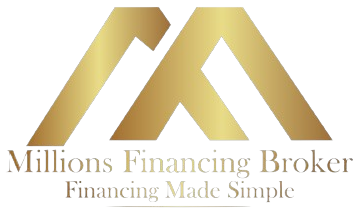Personal Account
A personal bank account is a financial tool that individuals use to manage their money efficiently. It serves as a repository for funds, facilitates everyday transactions, and can help with savings and budgeting. Understanding the various aspects, benefits, and considerations of personal bank accounts is essential for managing personal finances effectively.
Key Aspects of a Personal Account
Types of Personal Accounts:
- Checking Accounts: These are designed for everyday transactions such as deposits, withdrawals, and bill payments. They typically offer features like check writing, debit cards, and online banking.
- Savings Accounts: These accounts are intended for saving money and earning interest. They usually have limitations on the number of withdrawals per month but offer higher interest rates compared to checking accounts.
- Money Market Accounts: These combine features of both checking and savings accounts, offering higher interest rates and limited check-writing privileges.
- Certificates of Deposit (CDs): CDs are time-deposit accounts that offer higher interest rates in exchange for keeping the money deposited for a fixed term.
Account Features:
- Online and Mobile Banking: Most personal accounts come with online and mobile banking capabilities, allowing account holders to manage their finances from anywhere, at any time.
- Direct Deposit: This feature enables automatic deposit of paychecks and other recurring payments directly into the bank account.
- Automatic Transfers: Account holders can set up automatic transfers between their accounts for savings goals or bill payments.
- Overdraft Protection: This service prevents transactions from being declined due to insufficient funds by linking to another account or line of credit.
Documentation Requirements: Opening a personal bank account typically requires:
- Proof of identity (e.g., passport, driver’s license).
- Proof of address (e.g., utility bill, lease agreement).
- Social Security number or tax identification number.
- Initial deposit (depending on the bank’s policy).
Benefits of a Personal Account
Financial Management: Personal accounts provide a centralized place to manage income, expenses, and savings. This helps individuals track their spending, budget effectively, and save for future goals.
Safety and Security: Funds deposited in a bank account are generally protected by government insurance (such as FDIC insurance in the US), safeguarding the money against bank failures.
Convenience: Personal accounts offer easy access to funds through ATMs, online banking, and mobile apps, making it convenient to perform transactions, pay bills, and transfer money.
Interest Earnings: Savings accounts, money market accounts, and CDs offer interest on the deposited funds, allowing money to grow over time.
Credit Building: Having a personal account and managing it responsibly can help build a positive banking relationship, which is beneficial for obtaining loans, credit cards, and other financial products.
Considerations When Opening a Personal Account
Fees and Charges: Banks may charge various fees for account maintenance, overdrafts, ATM usage, and other services. It is important to understand these fees and choose an account that minimizes costs.
Minimum Balance Requirements: Some accounts require maintaining a minimum balance to avoid fees or earn interest. Ensure you can meet these requirements to avoid penalties.
Interest Rates: Compare interest rates offered by different accounts, especially for savings accounts and CDs, to maximize your earnings on deposited funds.
Accessibility: Consider the bank’s branch and ATM network, as well as the quality of its online and mobile banking services, to ensure easy access to your money.
Customer Service: Choose a bank known for good customer service, as you may need assistance with account management, resolving issues, or understanding financial products.
How to Open a Personal Account
Research and Choose a Bank: Research various banks and credit unions, comparing their account offerings, fees, interest rates, and customer service.
Gather Required Documents: Collect the necessary identification and proof of address documents.
Apply for an Account: This can often be done online, in person at a branch, or over the phone. Fill out the application form and submit the required documentation.
Make an Initial Deposit: Depending on the bank’s policy, you may need to make an initial deposit to activate the account.
Set Up Account Features: Once the account is open, set up online banking, direct deposit, and any other features you need to manage your finances efficiently.
Conclusion
A personal bank account is a fundamental tool for managing personal finances, offering safety, convenience, and various features to help individuals achieve their financial goals. By understanding the types of accounts available, their benefits, and the considerations involved in choosing the right account, individuals can make informed decisions that enhance their financial well-being. Whether it’s for daily transactions, saving for the future, or earning interest, a personal bank account is essential for effective financial management.
